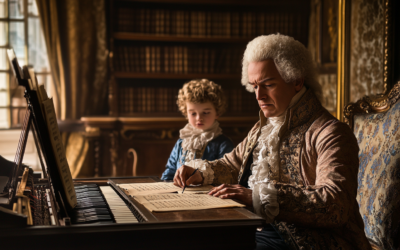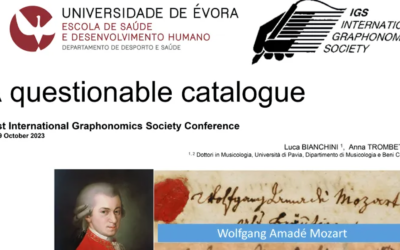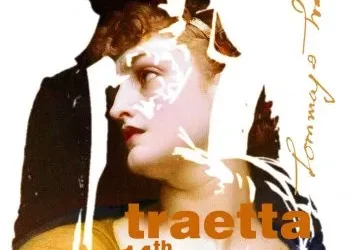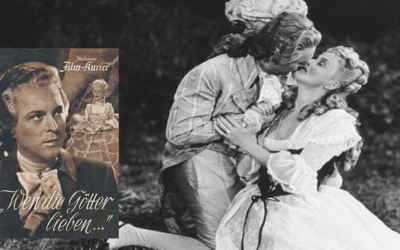The Return of Gatti's Aria
Our Revision Takes the Stage in Munich
In the magnificent Max Joseph Hall of the Residenz München, tenor Daniel Behle performed the aria “Puoi vantar le tue ritorte” by Luigi Gatti, taken from his opera Nitteti. This concertante piece, for which we composed the cadenzas, was brought to life by the Salzburger Hofmusik orchestra under the direction of Wolfgang Brunner.
Mozart: The Fall of the Gods
This book offers a fresh and critical look at the life of Wolfgang Amadeus Mozart, challenging the myths that have surrounded him for centuries. We strip away the romanticised image of the “natural genius” and delve into the contradictions within Mozart’s extensive biographies. Backed by nearly 2,000 meticulously sourced citations, this work invites readers to explore a deeper, more complex understanding of Mozart. Perfect for those who wish to question the traditional narrative, this biography is a must-read for serious music lovers and historians.
"It’s a pleasure to breathe new life into such a powerful, yet overlooked piece of music."
@MozartrazoM
We first introduced this virtuosic and spectacular music in its modern premiere in Bayreuth, where it was met with great enthusiasm. Given its success, we were thrilled to see it performed again in Munich.
Earlier this year, on 24th April, we had the opportunity to discuss this work in detail during our lecture at Bocconi University, explaining the intricate revisions we made to Gatti’s original composition. This marks another exciting milestone in reviving forgotten gems of 18th-century music and bringing them to modern audiences.
You May Also Like
K.143: A Recitative and Aria in the Shadows of Doubt
K.143 is a prime example of how Mozart scholarship has turned uncertainty into myth. With no definitive evidence of authorship, date, or purpose, this uninspired recitative and aria in G major likely originated elsewhere. Is it time to admit this is not Mozart’s work at all?
The Enigma of Mozart’s Symphony K.73
The Symphony in C Major K.73 has long puzzled Mozart scholars. Touted as a youthful work of prodigious talent, its origins are murky at best. The title “Symphony,” inscribed on the first page of the autograph, is devoid of the composer’s name, casting immediate doubt on its attribution to Wolfgang Amadeus Mozart. Was this truly his work, or is the Symphony yet another victim of overzealous attribution?
Mozart’s Thematic Catalogue Exposed as a Forgery
A groundbreaking forensic analysis reveals that Mozart’s thematic catalogue, long thought to be his own work, is a posthumous forgery. This discovery, detailed in Mozart: The Construction of a Genius, turns centuries of Mozart scholarship on its head, demanding a re-examination of his legacy.
Bologna Connections
Quirino Gasparini’s rediscovered Mitridate aria takes centre stage in Bern and Basel, shedding light on Mozart’s reliance on this forgotten composer.
International Traetta Award
We are thrilled to announce that the 14th International Traetta Award has been bestowed upon Anna Trombetta and Luca Bianchini. This prestigious recognition honours their outstanding dedication to musicological research on primary sources of the European musical repertoire, offering significant contributions to reshaping the historiography of 18th-century music.
A Legacy Rewritten by the Shadows of History
Mozart’s image, often regarded as a universal symbol of musical genius, was heavily manipulated by the Nazi regime, a fact largely ignored in post-war efforts to “denazify” German culture. From propaganda-driven films to anti-Semitic narratives, Mozart’s legacy is far more complex and troubling than we are often led to believe.







